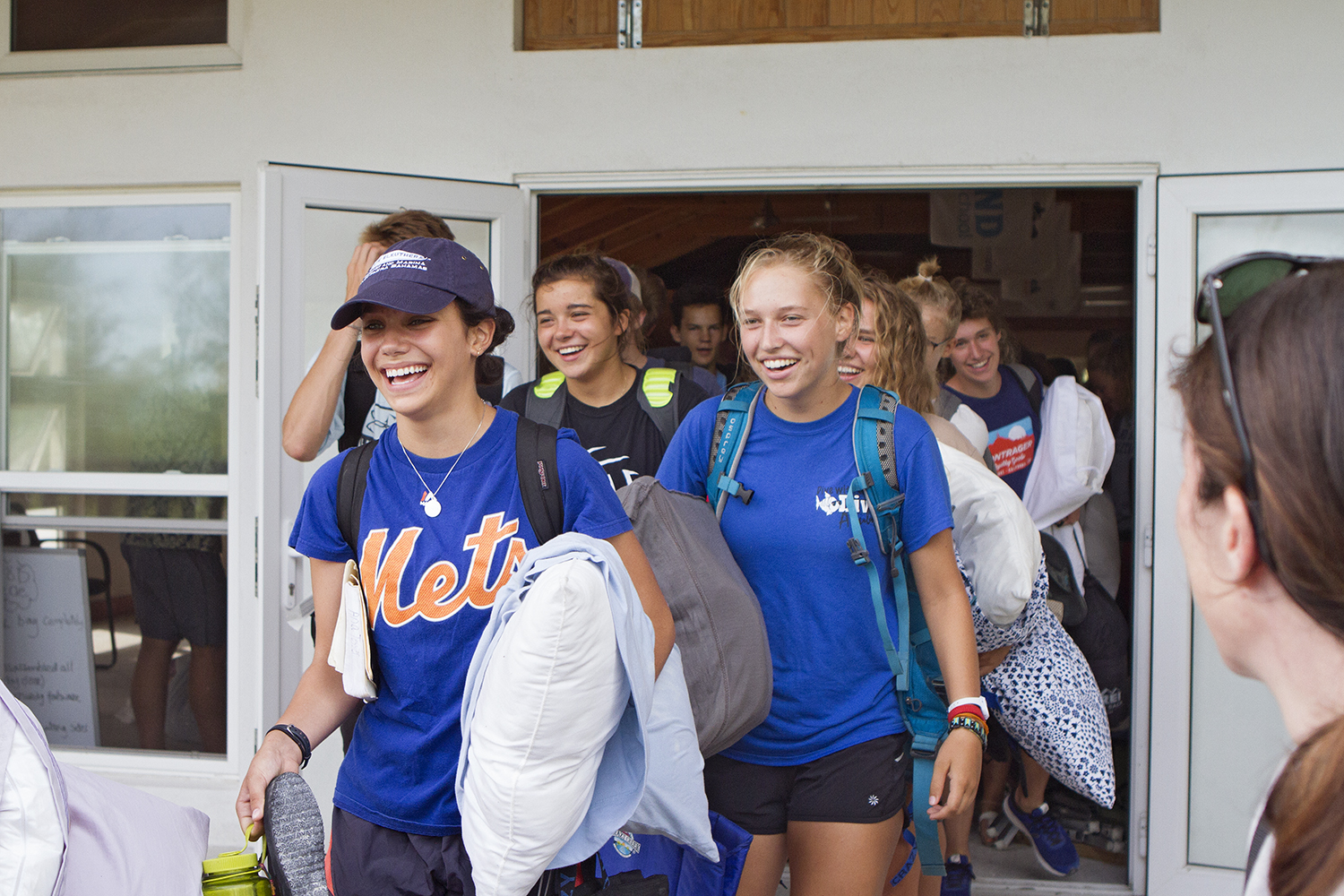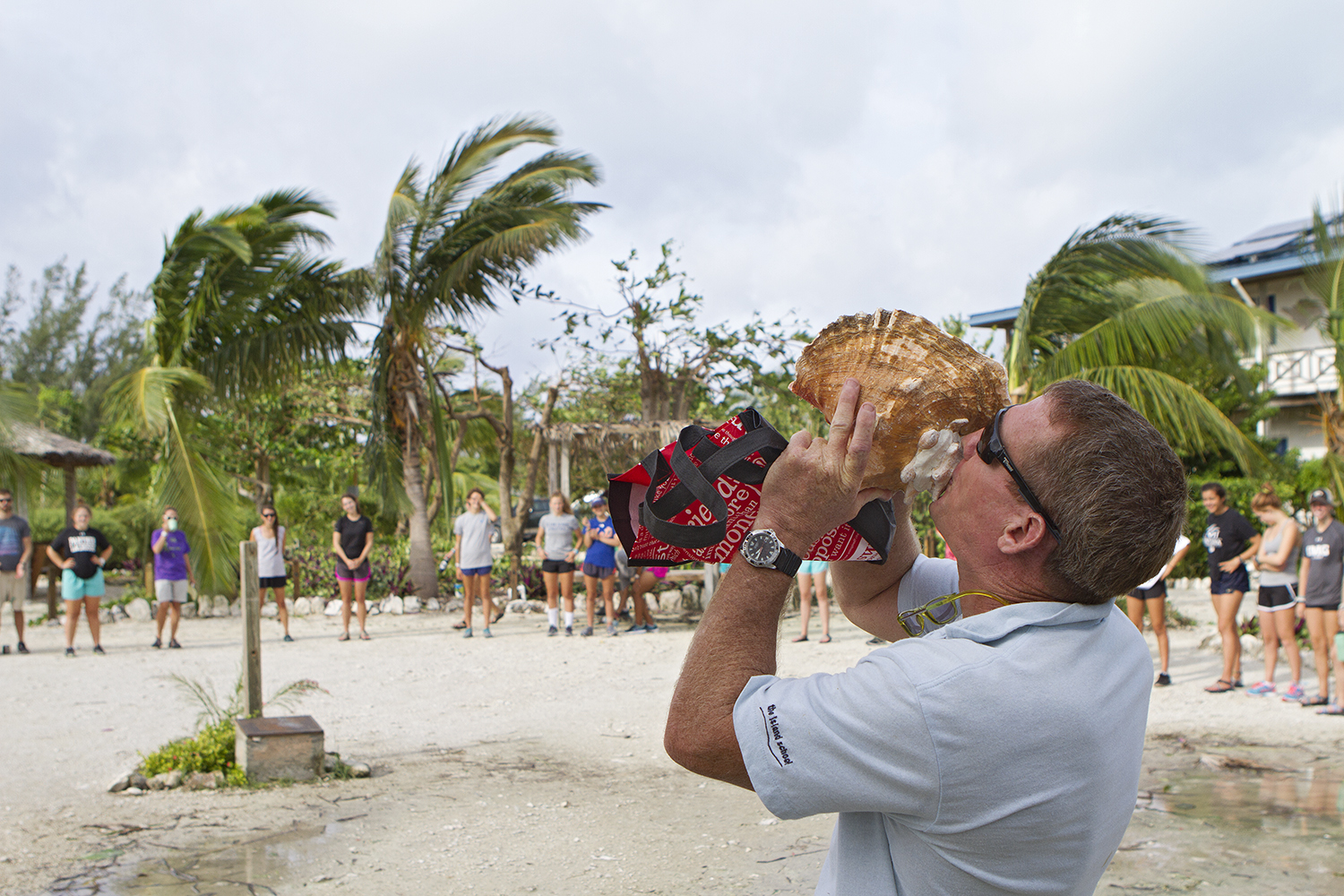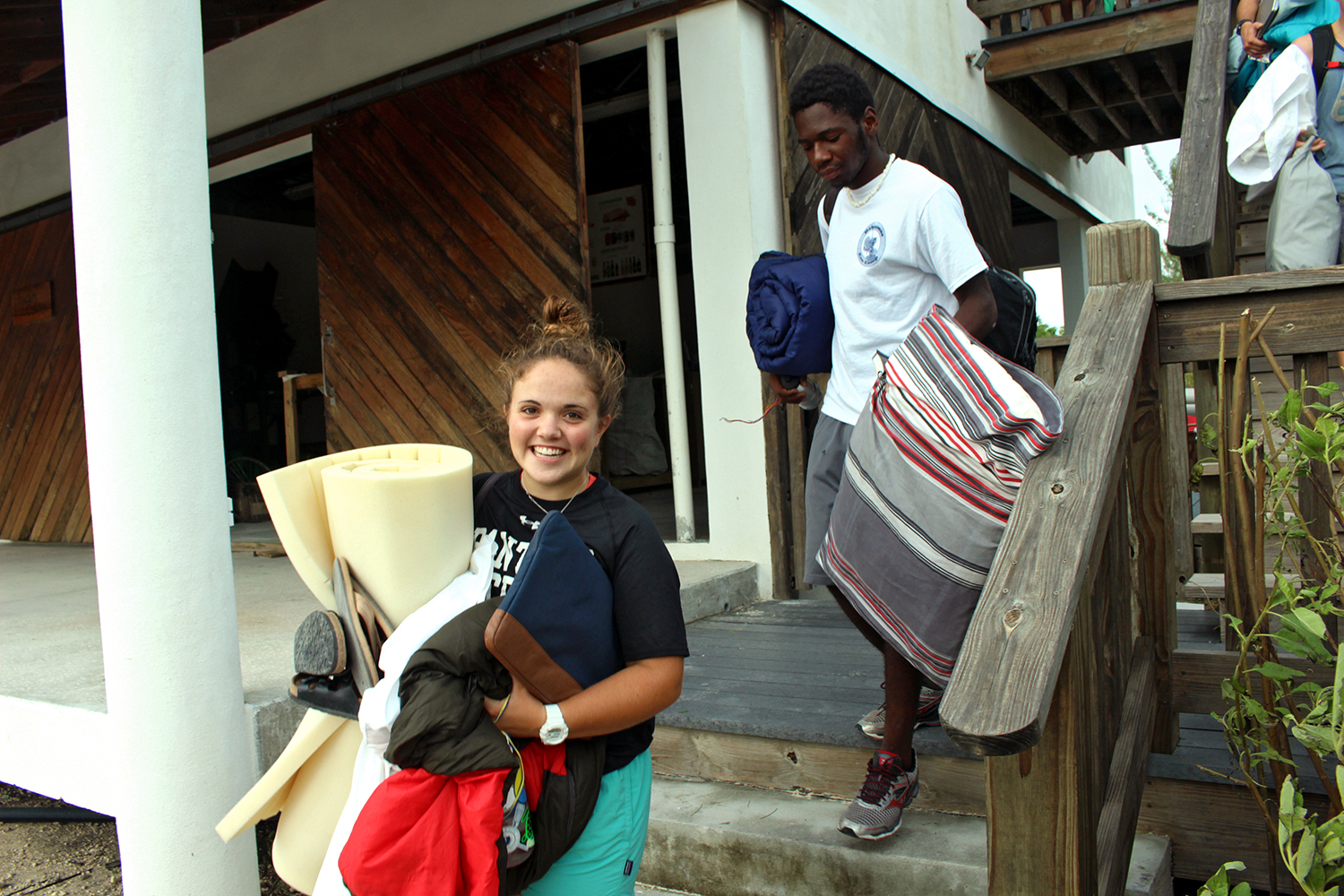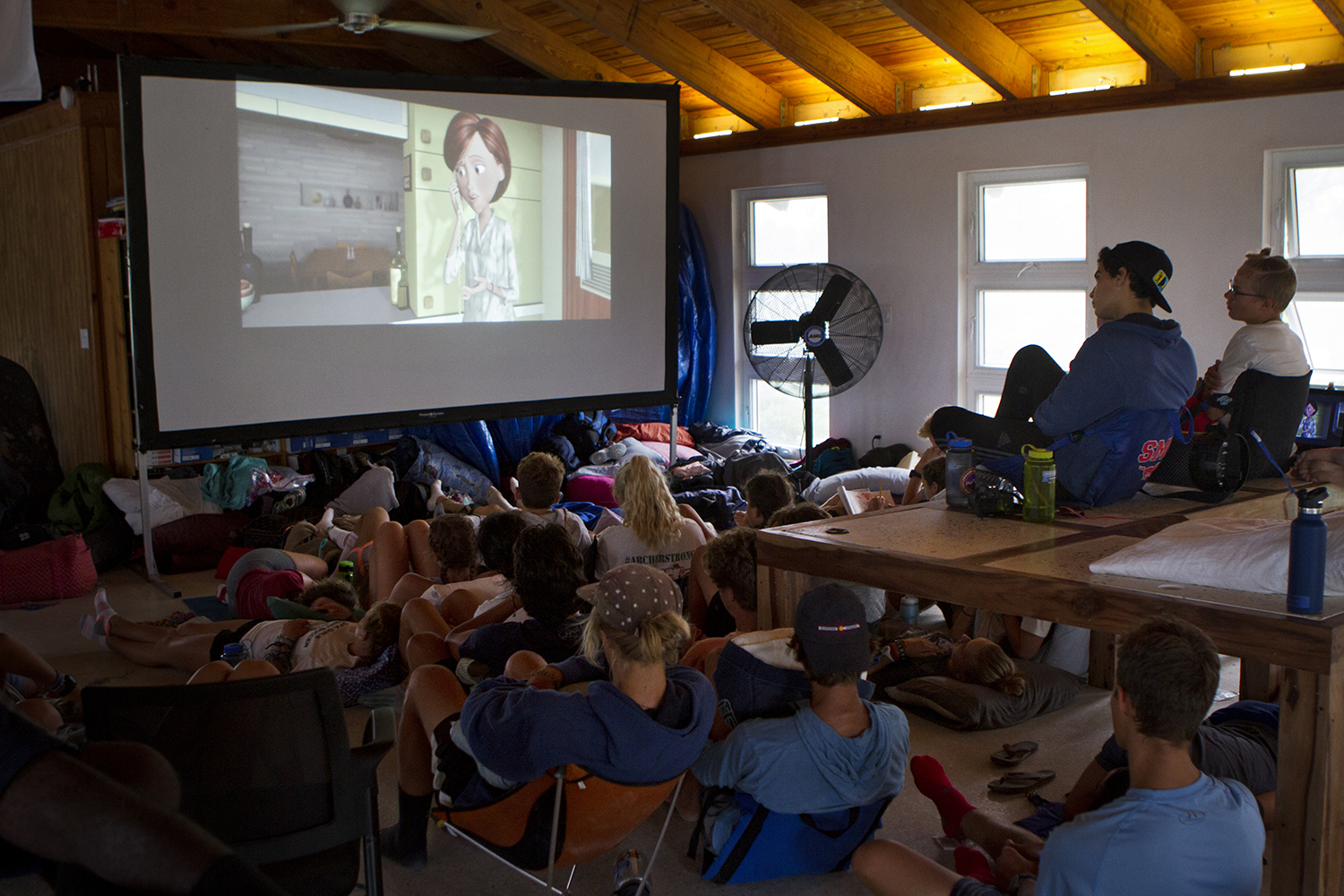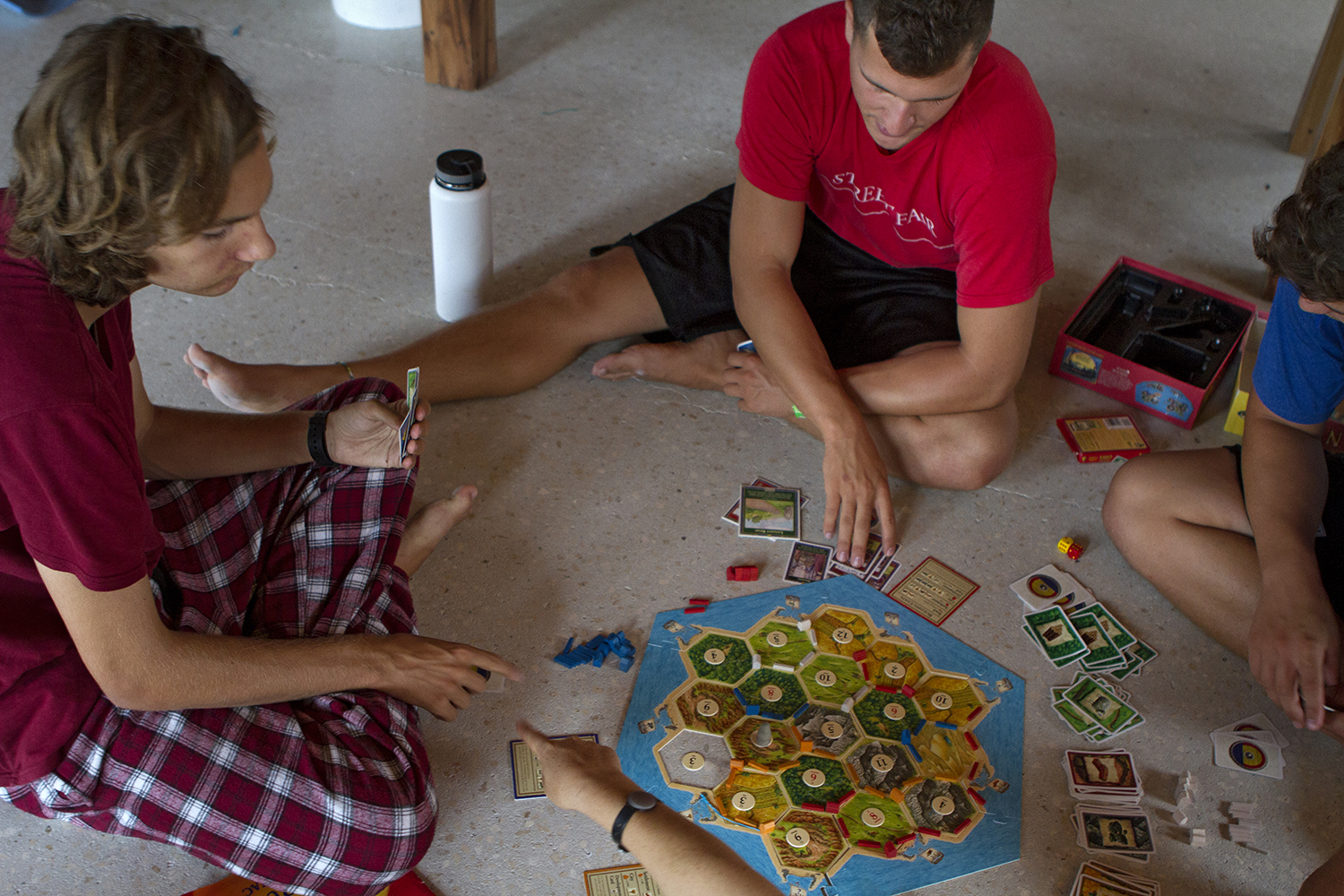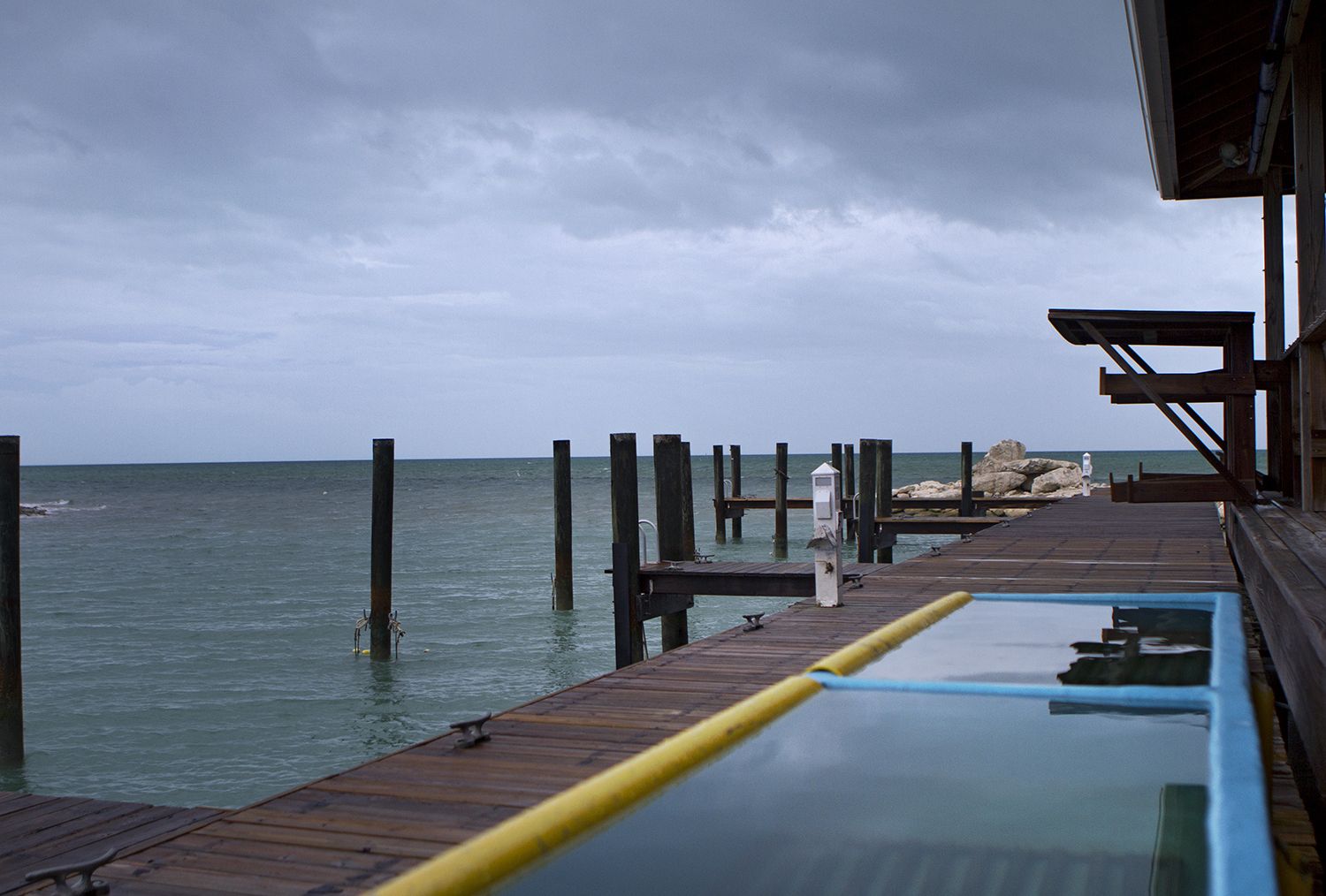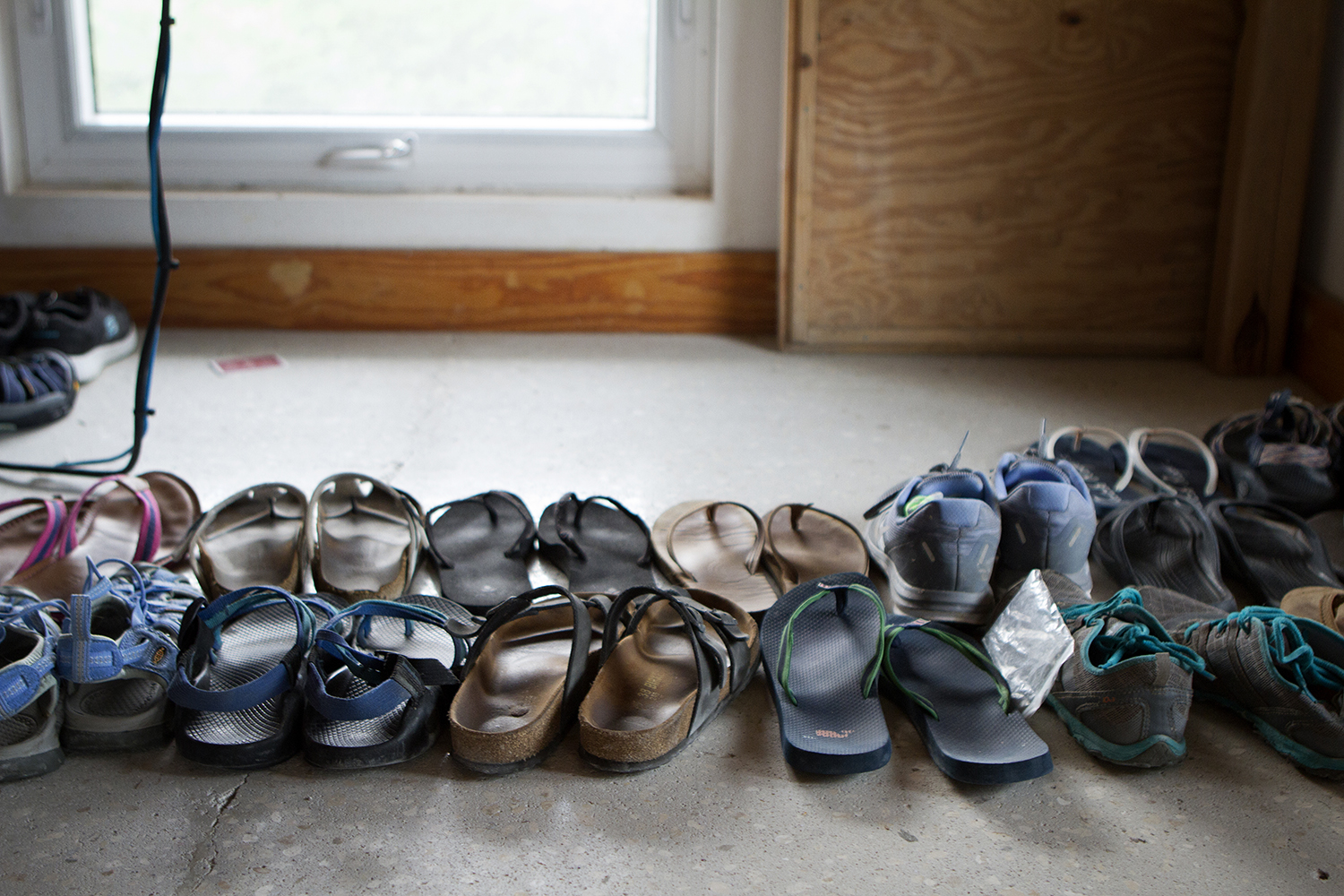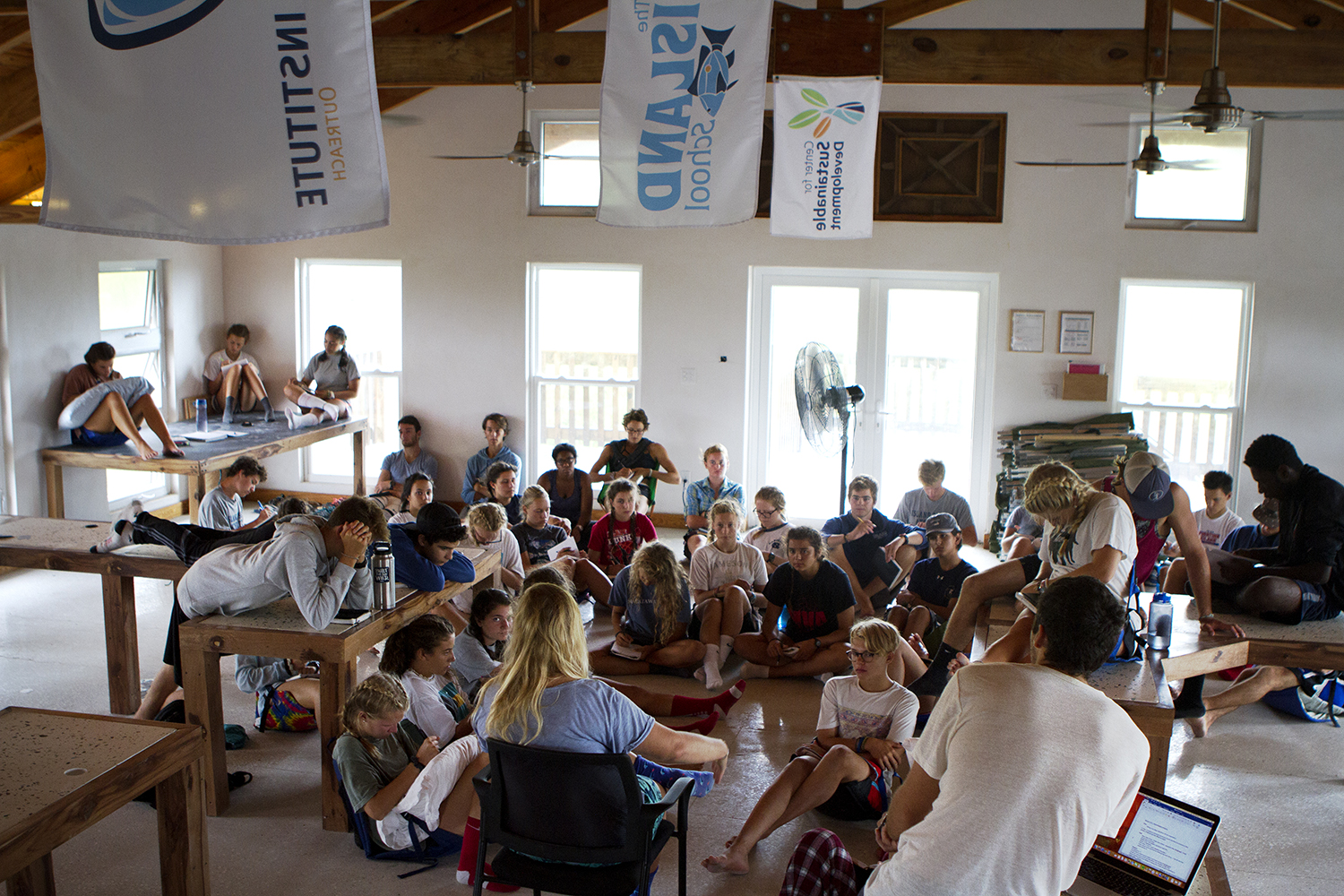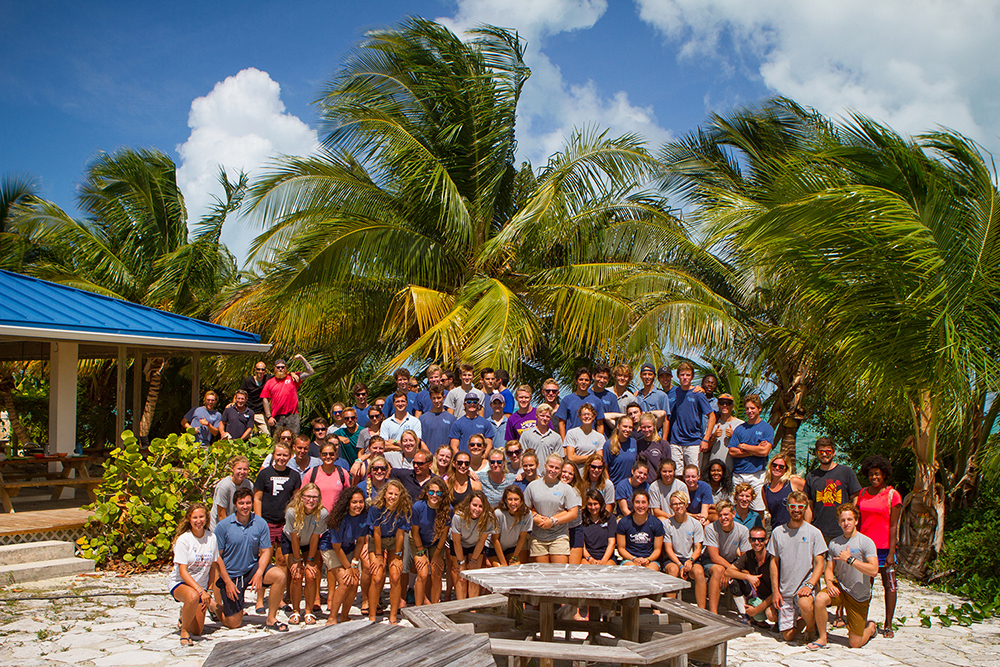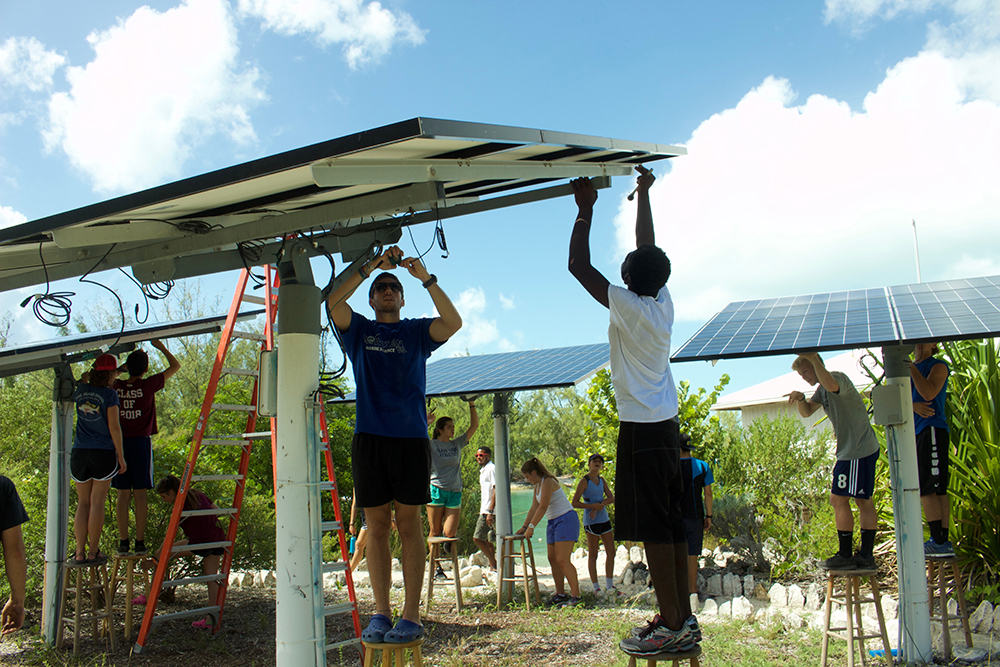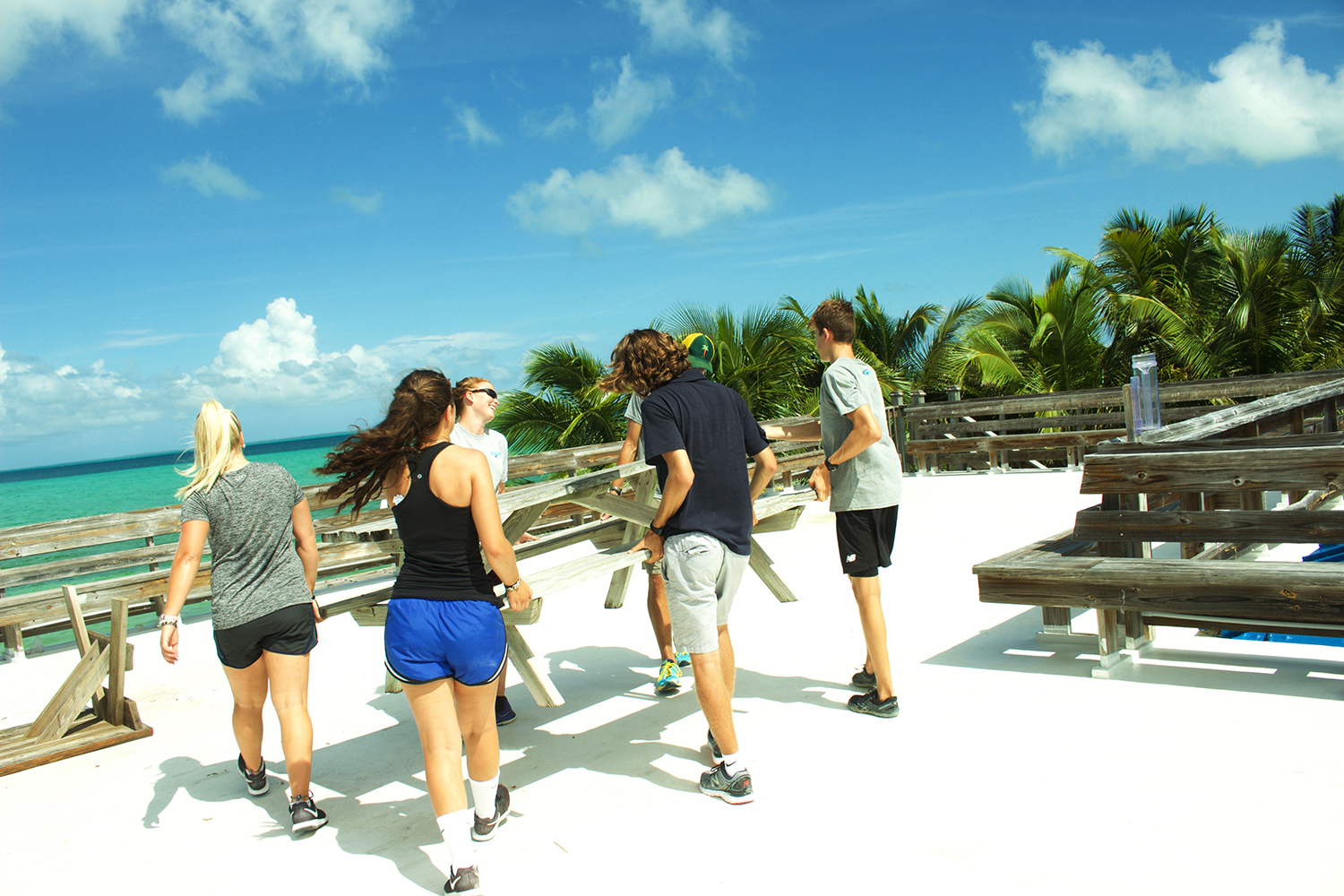Category Archives: CSD
Hurricane Matthew Update #5
Thursday October 6, 6pm
Fresh air! Students got to fill their lungs with the breezy air this afternoon after two days in what has been labeled “The Fortress.” They visibly perked up after a few minutes standing on the CSD balcony.
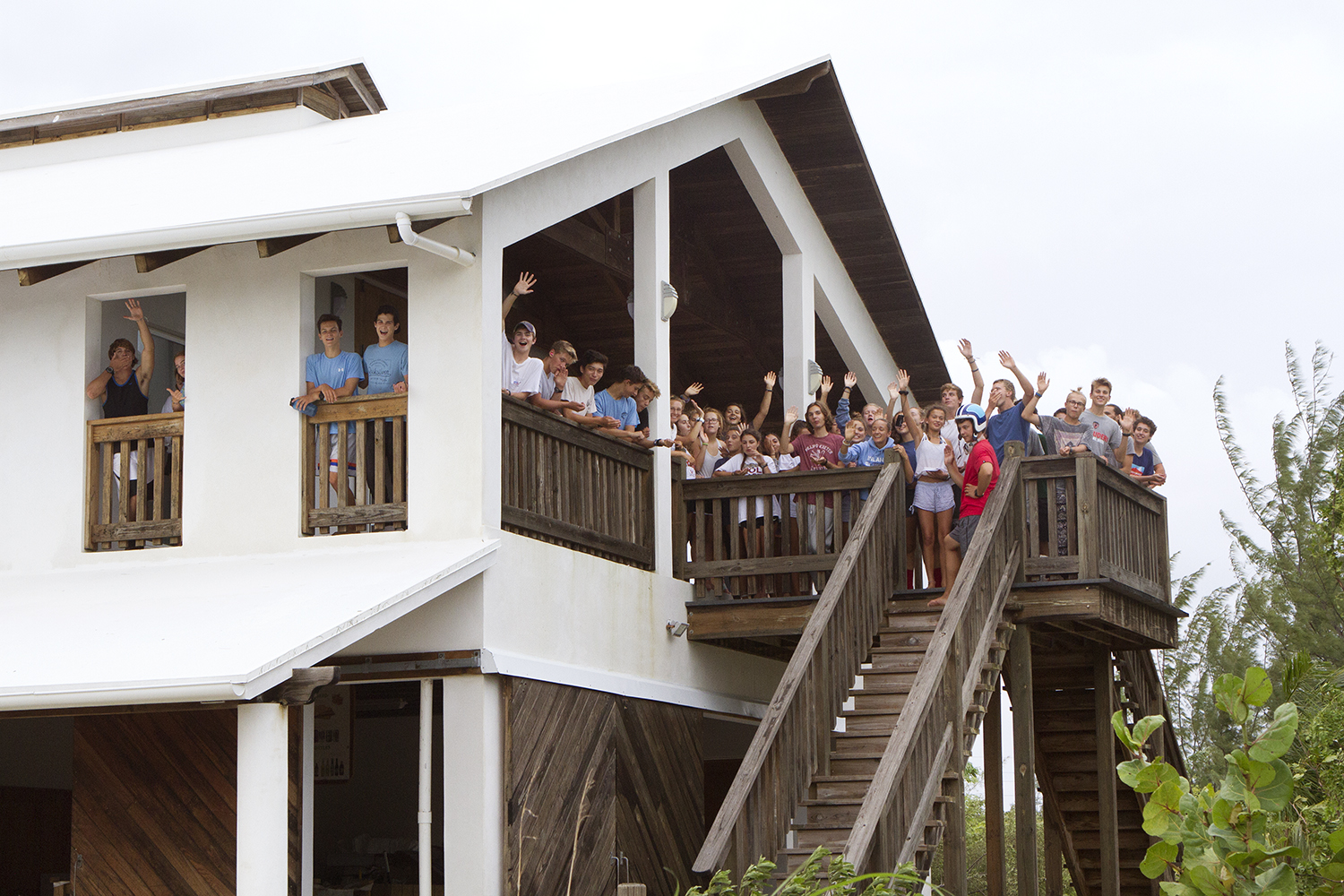
Last night and this morning brought strong winds and more rain to campus. There were a few minor leaks that were quickly cleaned up in CSD with blankets and team work. Winds are now dying down and skies are brightening as the center of the storm moves north.
Today included more team building exercises, classes, games, and music in The Fortress. Spirits remain high and creativity strong. Our students never seem to tire of creating new things to pass the time.
Our current plan is to remain in our respective shelters until Friday morning. Classes and schedules should return to normal shortly thereafter (with some inevitable cleanup around campus).
We will continue to keep a close eye on the storm and its trajectory as the path progresses. We pass on the well wishes and good energy from our campus to folks in Florida and other areas in the U.S. that are predicted to be hit by Matthew in the coming days.
Hurricane Matthew Update #4
Wednesday October 5, 7pm
Good Evening Family and Friends,
Hurricane Matthew Update #3
Wednesday October 5th, 11am
Good Morning Parents and Friends,
The Island School prepares for Hurricane Matthew
The Young Men’s Leadership Retreat: A Year-Long Pioneering Program a Year in the Making
This July, we welcomed a group of 15 young men (aged 10-18) to become future leaders and change makers. This 8 day program, lead by Chris Maxey (Island School Founder), Will Simmons (Space 2 Create Founder), Stan Burnside (Outreach Coordinator) and Nigel Sands (Educational Programs Apprentice), was designed to challenge all participants mentally, physically and emotionally. The aim of the program is to help build the future leaders of our immediate community. Early on the first morning of the program, the students set foot on the Base Camp, a place that would be their home for the next week. During the 3 months prior to this arrival, each participant was involved in the construction of this ground breaking new space, learning valuable skills and earning a small stipend in the process. The young men felt ownership over the space they helped to build even before they arrived. Through S.C.U.B.A., snorkeling and free diving they learned to explore the amazing world that has felt foreign even though it has been in their backyards all their lives. Through the next week, the young men would face run swims, water polo, survival skills and stingray research all while supporting and encouraging each other and learning the values of brotherhood in the process. What may have been most challenging for the young men was the emotional and social issues addressed during the course of the week. Amid all of the physical challenges, time was designated to address vital issues such as: drug abuse, healthy relationships, goal setting and violence.
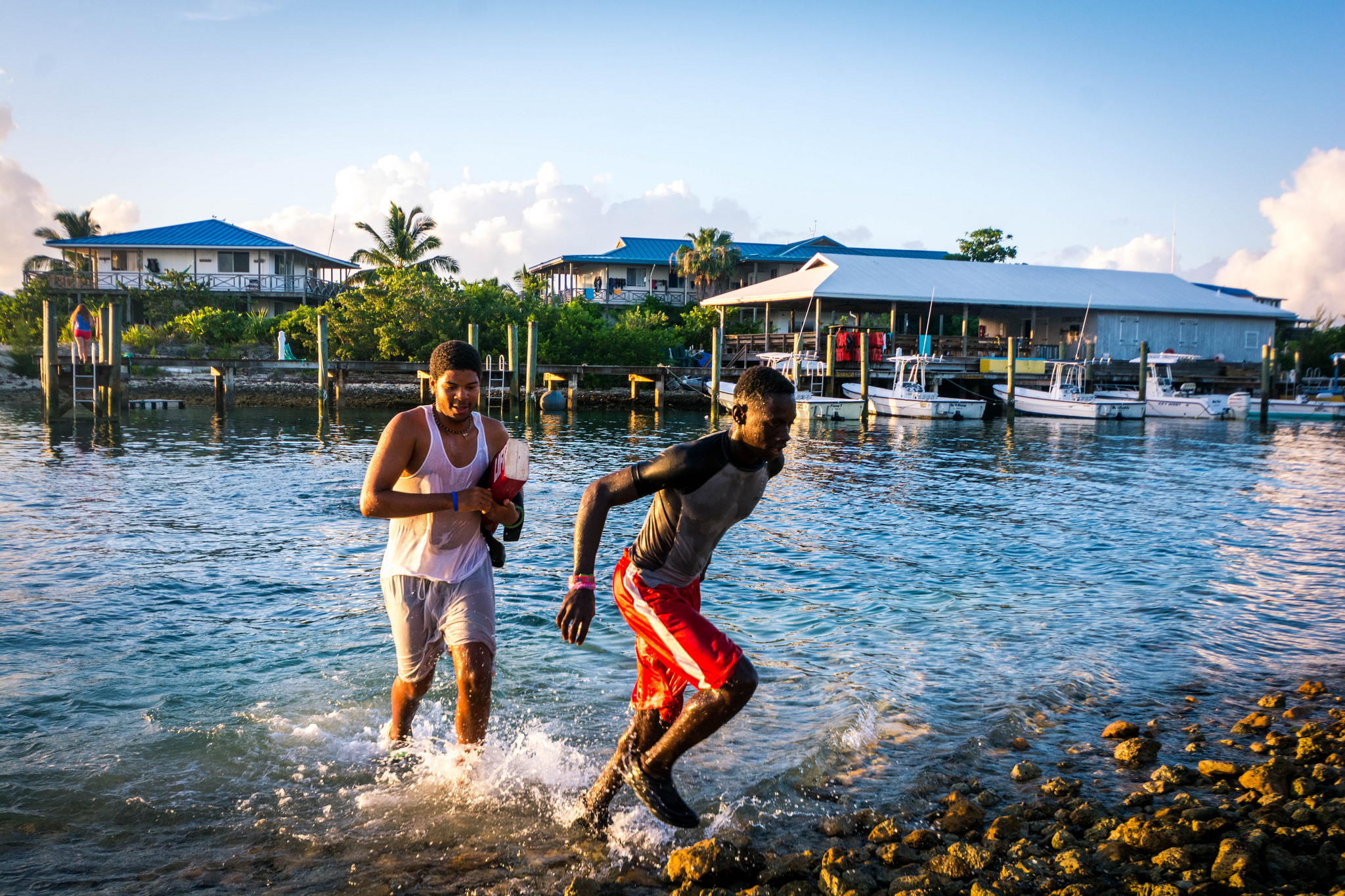
While this program was only 8 days long, it is the culmination of over a year of hard work and dedication. The idea that spurred this initiative for change was the blatant over-representation of young men in the areas of unemployment and academic under-achievement. The need was obvious but the solution was less clear. Getting the young men to our campus was a simple solution but would most likely not have had the lasting positive impact that is crucial for real change. To foster this change, the program is designed to kick off a year-long mentorship program for each participant. During the year to come, the participants are going to be mentored by various members of our organization. The members of the Center for Sustainable Development have been pivotal in the initial success of this endeavor, lending not only their expertise but also their guidance and advice to each of these young men. This continued relationship is what is going to make the lasting change.
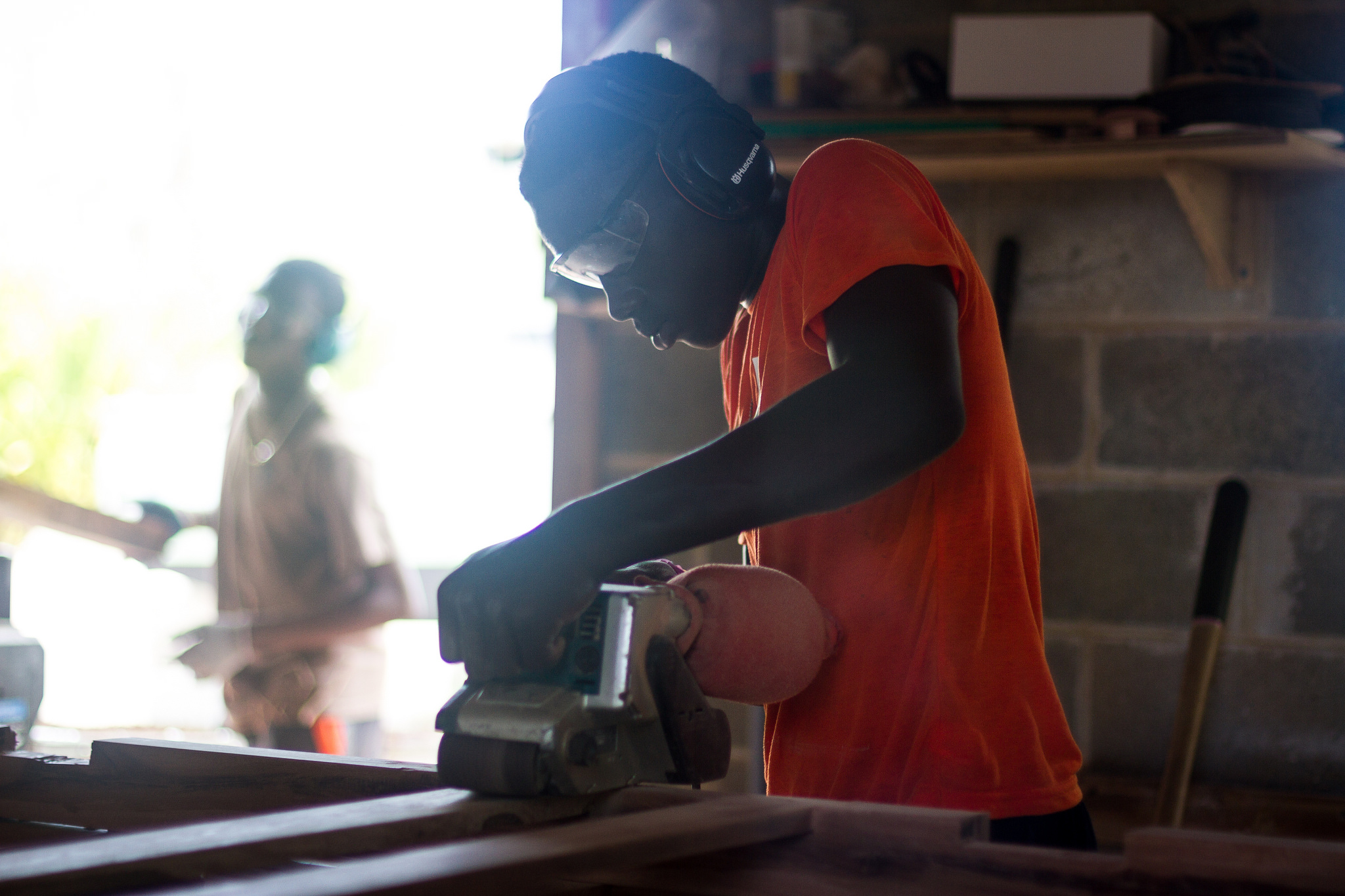
The 8 day program was just the first step towards a brighter future. There is a long road ahead but we are committed to making a difference.
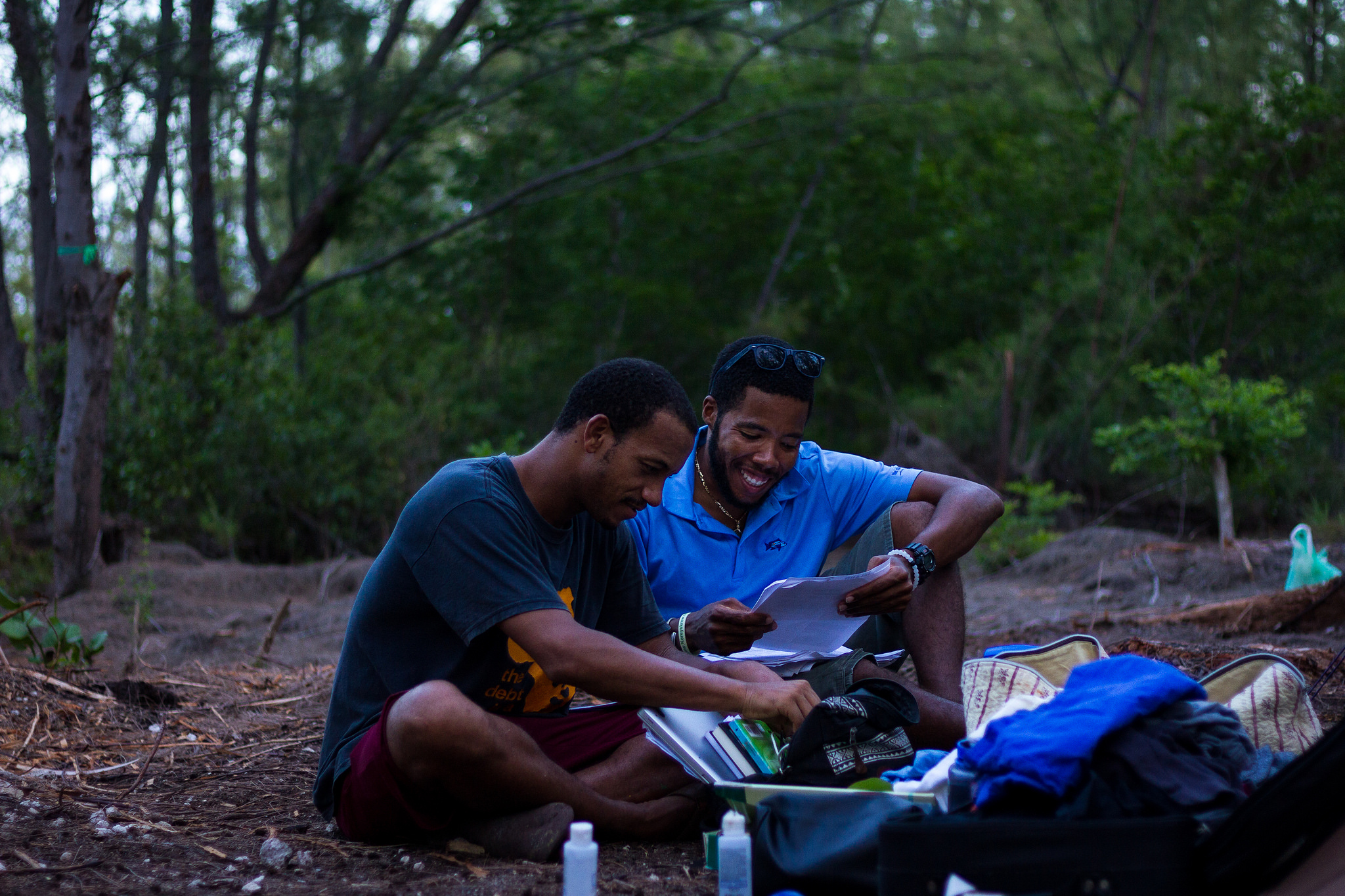
The Island School prepares for hurricane Joaquin
We continue to prepare this week for hurricane Joaquin. Boats are out of the water, shutters are going on windows, and outdoor activities are abbreviated even as indoor classes continued Thursday morning. Our campus leadership team met again this morning to finalize plans through the weekend, which include assigning people and resources to designated buildings so everyone can shelter in place as the wind and rain intensify over the coming days.
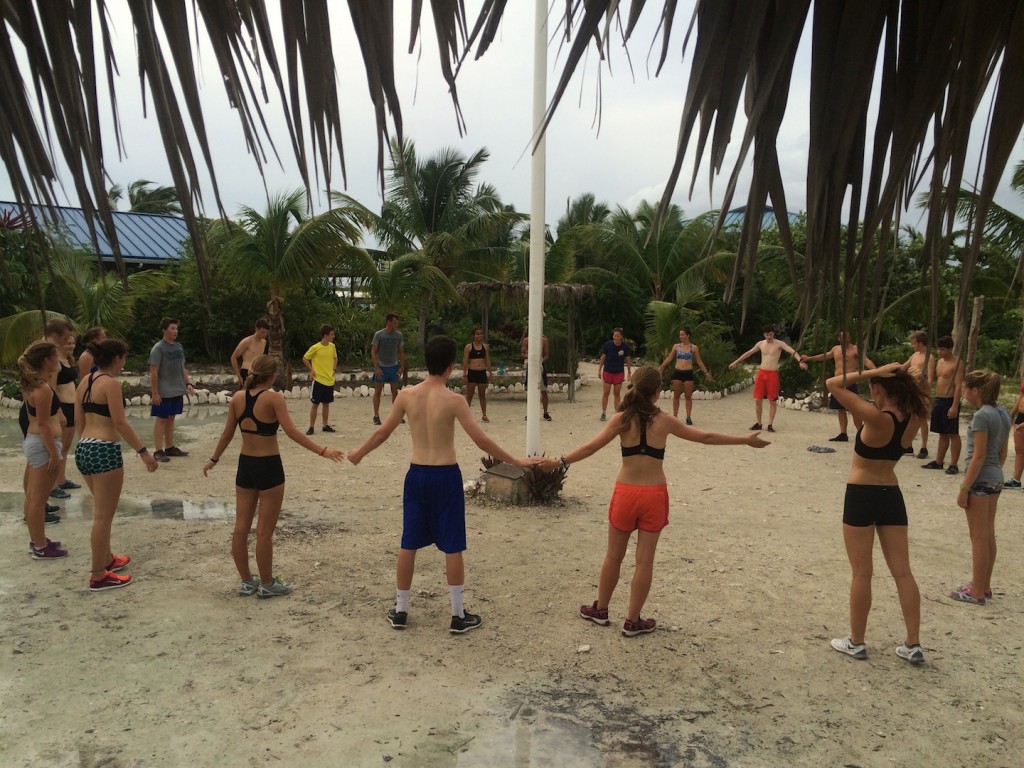
As is customary, we have been watching this and the other storms of the season, and have stocks of food and water, medical supplies and equipment in place, and are ready to respond to needs in the wider community if we are called on. We are carefully monitoring the forecasts of the storm track and intensity, as well as tides and storm surge projections, and have made higher ground or second floor sleeping arrangements in Deep Creek and on campus for employees and students as a precaution, according to our established hurricane protocols. This is a powerful storm with high winds and rainfall expected, and storm surge possible, and out of an abundance of caution, we are taking all reasonable measures.
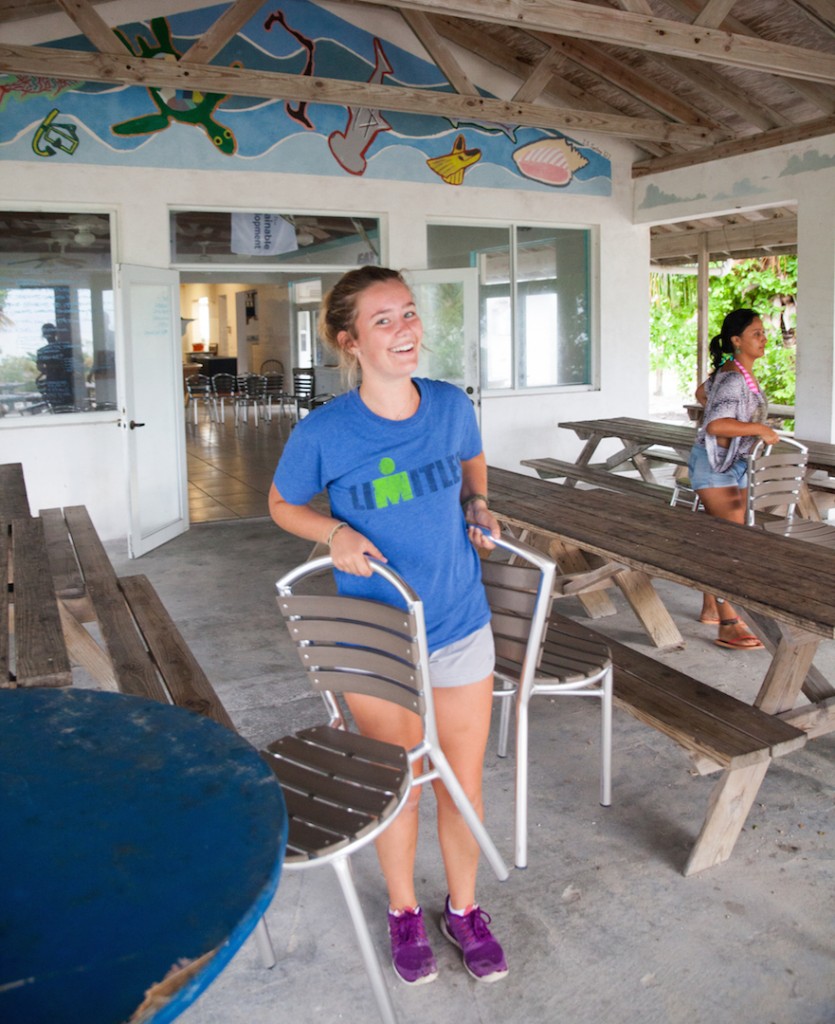
During and after past storms regular internet, phone, and utility power services are interrupted, and we have backup power and communications systems in place. We expect that our Boston-based team will receiving updates from campus throughout, and posting them to our Facebook page and to our blog which is the best place to look for updates.
To reach our team about specific concerns please email us at info@islandschool.org or call our US office number at (609) 620-6700. We appreciate all of the well wishes and good energy people have been sending to us. Please look for more updates daily here.
The Biodiesel Program Gets An Upgrade
In November 2014, the Biodiesel program at The Island School began an upgrade to the biodiesel manufacturing equipment. The update, which was recently completed, drastically improved the speed at which fuel is produced and also improves the quality of the end product. The upgrade included the installation of a drywash tower, a methanol recovery unit, and reconfigured the entire facility with new plumbing, pumps, flow meters, and electrical controls.
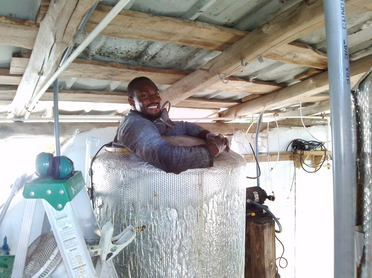
The Drywash Tower replaces the previous method of cleaning processed fuel, which used water. The dry wash tower shortens the production time to process 150 gallons of biodiesel to two days, as opposed to 10-12 days as previously experienced. This has increased our production capacity to well over 30,000 gallons per year, nearly 4 times our previous capacity, and well above our current fuel demand. On a yearly basis, the drywash tower saves the school nearly 20,000 gallons of water, over 750 man-hours of labor costs, and drastically reduced production costs.
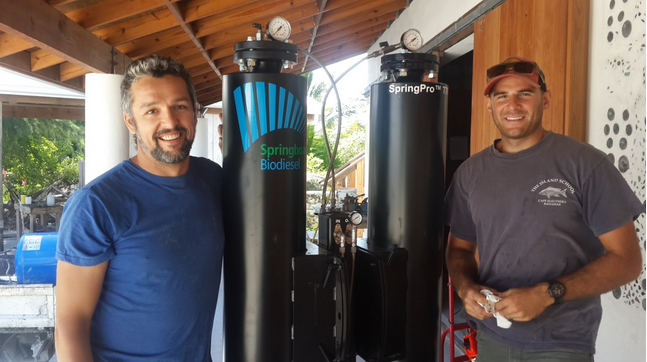
A secondary piece of new equipment installed is a Methanol Recovery unit. As the name would lend you to believe, the methanol recovery unit enables the recovery of excess methanol from the glycerol waste stream of the biodiesel reaction. The recovered methanol can be reused back into the production cycle and offset a portion of the methanol the program needs to purchase and import from the US. The methanol recovery unit has the potential to reduce the cost of biodiesel production by over $0.20 per gallon; and since methanol is the most expensive of the three chemical ingredients that make biodiesel, financial savings are felt on a very short time scale.
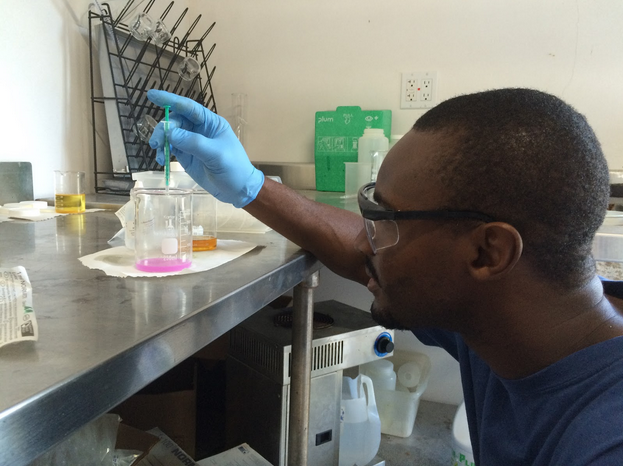
The biodiesel program at Island School began as a student run research project in the fall semester of 2002. Currently, the Organization uses biodiesel in vans, surfs, trucks and backup generators. We will soon begin testing biodiesel in boats, which has the potential to save the organization significantly in fuel expenditures. B100 (100% biodiesel) burns much cleaner and more completely than diesel fuel from other sources, such as fossil fuels. On average, a reduction of 60% in particulate matter, 60% in carbon monoxide, 70% in unburnt hydrocarbons, and 100% in sulfur dioxide can be expected. Moreover, the main chemical ingredient in biodiesel is used cooking oil; a perfect example of a renewable source of fuel.
If you have any further questions, or care to learn more about the biodiesel program at The Island School, please email biodiesel@islandschool.org.
Opportunities on Cape Eleuthera
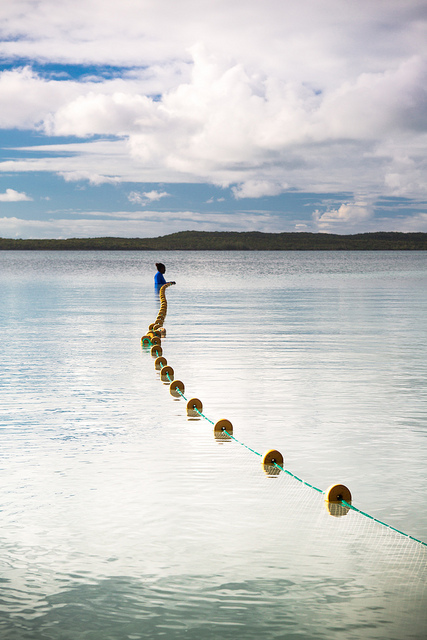 The Island School, Cape Eleuthera Institute, and Center for Sustainable Development have a number of internship and work opportunities still available for the 2014-15 academic year. You can learn more about all of the opportunities on our websites. For specific questions, please email info@islandschool.org.
The Island School, Cape Eleuthera Institute, and Center for Sustainable Development have a number of internship and work opportunities still available for the 2014-15 academic year. You can learn more about all of the opportunities on our websites. For specific questions, please email info@islandschool.org.
Cape Eleuthera Institute - Internships
The Island School - Full-time Communications Educator
Center for Sustainable Development - Internships
Permaculture Design Course (PDC) This August!
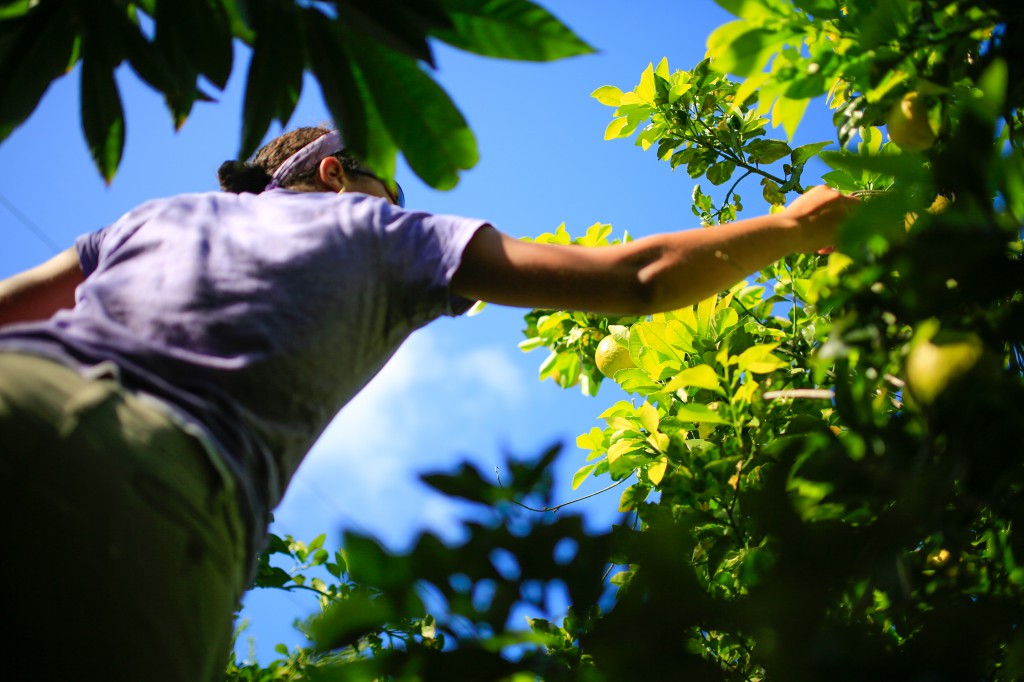 Have you ever been curious about permaculture? Are you itching grow your own food? Do you dream of transforming your yard into an edible oasis? If any of that sounds appealing to you, then come down and join us for our Permaculture Design Course that we’ll be hosting this summer from August 4-18.This course will give exactly the skills and knowledge you need to turn your brown thumb into a decidedly green one! It can also be the starting point for anyone who is considering practicing or teaching permaculture as a career, as this course is recognized worldwide as the first level of professional certification for permaculture.
Have you ever been curious about permaculture? Are you itching grow your own food? Do you dream of transforming your yard into an edible oasis? If any of that sounds appealing to you, then come down and join us for our Permaculture Design Course that we’ll be hosting this summer from August 4-18.This course will give exactly the skills and knowledge you need to turn your brown thumb into a decidedly green one! It can also be the starting point for anyone who is considering practicing or teaching permaculture as a career, as this course is recognized worldwide as the first level of professional certification for permaculture.
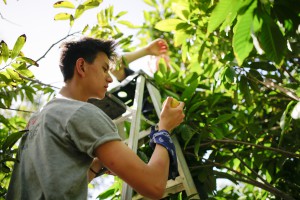 We’ll spend two solid weeks learning about the fundamentals of permaculture design, going through topics such as permaculture principles and ethics, soils, gardening, design strategies, aquaponics, animal systems, urban permaculture, and a lot more. We’ll also be getting our hands dirty making compost, grafting trees, learning propagation techniques, visiting farms, creating gardens, and engaging in other hands-on activities. And best of all you’ll be learning with other like-minded students with the same curiosity and passion for the natural world. The makeup of these courses tends to be very diverse, with ages ranging from people fresh out of high school with no experience even planting a seed, to professionals in their 40s and 50s looking to drastically change their lifestyle, to people in their 60s or 70s with years of experience working in agricultural settings who want to take their gardening powers to the next level.
We’ll spend two solid weeks learning about the fundamentals of permaculture design, going through topics such as permaculture principles and ethics, soils, gardening, design strategies, aquaponics, animal systems, urban permaculture, and a lot more. We’ll also be getting our hands dirty making compost, grafting trees, learning propagation techniques, visiting farms, creating gardens, and engaging in other hands-on activities. And best of all you’ll be learning with other like-minded students with the same curiosity and passion for the natural world. The makeup of these courses tends to be very diverse, with ages ranging from people fresh out of high school with no experience even planting a seed, to professionals in their 40s and 50s looking to drastically change their lifestyle, to people in their 60s or 70s with years of experience working in agricultural settings who want to take their gardening powers to the next level.
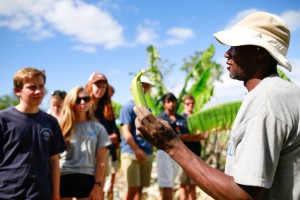 Our motto at the Island School is “the campus is the classroom”; we’re big believers in experiential learning. So where else to teach permaculture design than our impressive permaculture systems right here on campus! Permaculture is a part of everything we do here. Guavas, cherries, natal plums, papaya, and dozens of medicinal and edible plants line our campus pathways. Our 40,000 liter aquaponic system nestled right next to our research wetlab provides us with fresh lettuce and herbs every day, and lots of tilapia for the dinner table. A rotational animal system keeps our pigs and goats happy, clean, and healthy with a continuous supply of fresh pasture. Our forest garden in the back of campus is a great place for staff and students to take a walk and unwind, but it’s also a diversified orchard with over a dozen kinds of fruit that can provide the perfect snack on a hot day. And of course we have our nursery and gardens where we can propagate and plant a wide variety of edible crops. These systems are not only productive and ecologically regenerative, but they some of the best learning tools we have on campus.
Our motto at the Island School is “the campus is the classroom”; we’re big believers in experiential learning. So where else to teach permaculture design than our impressive permaculture systems right here on campus! Permaculture is a part of everything we do here. Guavas, cherries, natal plums, papaya, and dozens of medicinal and edible plants line our campus pathways. Our 40,000 liter aquaponic system nestled right next to our research wetlab provides us with fresh lettuce and herbs every day, and lots of tilapia for the dinner table. A rotational animal system keeps our pigs and goats happy, clean, and healthy with a continuous supply of fresh pasture. Our forest garden in the back of campus is a great place for staff and students to take a walk and unwind, but it’s also a diversified orchard with over a dozen kinds of fruit that can provide the perfect snack on a hot day. And of course we have our nursery and gardens where we can propagate and plant a wide variety of edible crops. These systems are not only productive and ecologically regenerative, but they some of the best learning tools we have on campus.
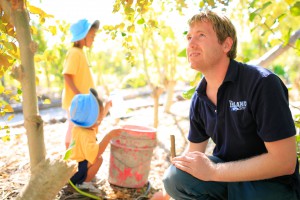 The instructors for this course will be Adam Dusen and experienced Caribbean permaculture teacher Erle Rahaman-Noronha. Adam’s experience in permaculture has had him working at and designing permaculture systems in Pennsylvania, Thailand, Sweden, Kenya, and The Bahamas. He now manages the permaculture and aquaponics systems here at the Island School, and also teaches about permaculture and sustainable agriculture at the brand new Center for Sustainable Development.
The instructors for this course will be Adam Dusen and experienced Caribbean permaculture teacher Erle Rahaman-Noronha. Adam’s experience in permaculture has had him working at and designing permaculture systems in Pennsylvania, Thailand, Sweden, Kenya, and The Bahamas. He now manages the permaculture and aquaponics systems here at the Island School, and also teaches about permaculture and sustainable agriculture at the brand new Center for Sustainable Development.
Erle has been teaching permaculture professionally and conducting workshops not only where he lives in Trinidad, but also in Grenada, Jamaica, Puerto Rico, The US Virgin Islands, and St. Lucia. He also manages his own permaculture farm, Wa Samaki Ecosystems, and knows first-hand what it takes to run a farm that is not only ecologically and socially productive, but economically profitable. Erle is becoming quite well-known for his permaculture prowess, and was recently featured in his own TED talk on the subject. Check it out!
If you are interested in attending, check out our website for more information on pricing, accommodation, and anything else you might want to know. You can register for the course or send any inquries by contacting Adam at adamdusen@csdbahamas.org. Places in these courses tend to fill fast, so don’t wait too long to register!

